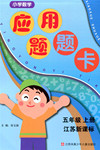题目内容
【题目】 Papa, as a son of a dirt-poor farmer, left school early and went to work in a factory, for education was for the rich then. So, the world became his school. With great interest, he read everything he could lay his hands on, listened to the town elders and learned about the world beyond his tiny hometown. “There’s so much to learn,” he’d say. “Though we’re born stupid, only the stupid remain that way.” He was determined that none of his children would be denied an education.
Thus, Papa insisted that we learn at least one new thing each day. Though, as children, we thought this was crazy, it would never have occurred to us to deny Papa a request. And dinner time seemed perfect for sharing what we had learned. We would talk about the news of the day; no matter how insignificant, it was never taken lightly. Papa would listen carefully and was ready with some comment, always to the point.
Then came the moment—the time to share the day’s new learning.
Papa, at the head of the table, would push back his chair and pour a glass of red wine, ready to listen.
“Felice,” he’d say, “tell me what you learned today.”
“I learned that the population of Nepal is ...”
Silence.
Papa was thinking about what was said, as if the salvation of the world would depend upon it. “The population of Nepal. Hmm. Well …” he’d say. “Get the map; let’s see where Nepal is.” And the whole family went on a search for Nepal.
This same experience was repeated until each family member had a turn. Dinner ended only after we had a clear understanding of at least half a dozen such facts.
As children, we thought very little about these educational wonders. Our family, however, was growing together, sharing experiences and participating in one another’s education. And by looking at us, listening to us, respecting our input, affirming our value, giving us a sense of dignity, Papa was unquestionably our most influential teacher.
Later during my training as a future teacher, I studied with some of the most famous educators. They were imparting what Papa had known all along—the value of continual learning. His technique has served me well all my life. Not a single day has been wasted, though I can never tell when knowing the population of Nepal might prove useful.
【1】What do we know from the first paragraph?
A.The poor could hardly afford school education.
B.Those born stupid could not change their life.
C.The town elders wanted to learn about the world.
D.The author’s father was born in a worker’s family.
【2】The underlined word “it” in the second paragraph refers to “__________”.
A.one new thingB.a request
C.some commentD.the news
【3】It can be learned from the passage that the author ___________.
A.enjoyed talking about newsB.knew very well about Nepal
C.appreciated his father’s educational techniqueD.felt regret about those wasted days
【4】What is the greatest value of “dinner time” to the author?
A.Showing talents.B.Continual learning.
C.Family get-together.D.Winning Papa’s approval.
【答案】
【1】A
【2】D
【3】C
【4】B
【解析】
这是一篇记叙文。讲述了作者的父亲由于贫穷无法读书,但是他对学习很重视,要求自己的孩子每天都要学习新知识,强调持续学习。表达了作者对于父亲的敬爱。
【1】细节理解题。根据第一段中Papa, as a son of a dirt-poor farmer, left school early and went to work in a factory, for education was for the rich then.可知爸爸是一个赤贫农民的儿子,他很早就离开了学校,到一家工厂工作,因为那时教育是富人的事。由此可知,父亲因为穷而无法上学,接受教育是富人的事情,穷人上不起学。故选A。
【2】词义猜测题。根据上文We would talk about the news of the day; no matter how insignificant可知我们会谈论一天的新闻,不论重要与否,都不是可以等闲视之的。由此可知,it指代的是上文的news,故选D。
【3】推理判断题。根据最后一段中Later during my training as a future teacher, I studied with some of the most famous educators. They were imparting what Papa had known all along—the value of continual learning. His technique has served me well all my life.可知后来,在我接受培训成为一名未来的教师期间,我师从了一些最著名的教育家。他们在传授爸爸一直都知道的东西——持续学习的价值。他的技术使我受益了一生。由此可推知,作者很欣赏他父亲的教育技巧。故选C。
【4】推理判断题。根据最后一段中His technique has served me well all my life.可知他的技术使我受益了一生。结合上文讲述父亲每天都让孩子们讨论当天所发生的重大事情,以此来让孩子每天都学到新的知识,这样的讨论都是在吃饭的时候进行的,由此可推知“dinner time”对作者最大的价值是持续学习。故选B。

 超能学典应用题题卡系列答案
超能学典应用题题卡系列答案